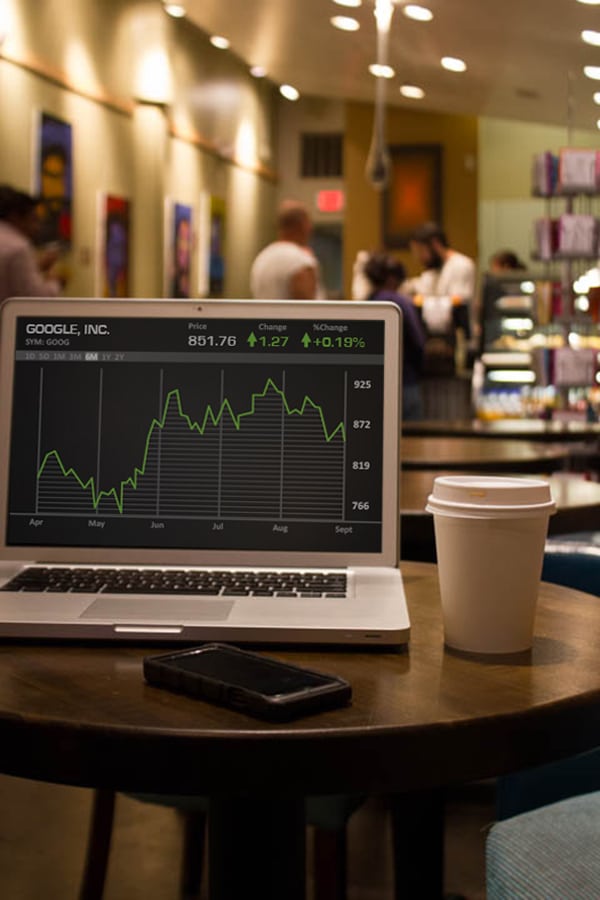I was in college during the “dot-com” boom. My lab partner, a cocky dude to be sure, said he spent a lot of his days day trading. And he seemed to be doing well enough, though he never elaborated. While I don’t know if he had any particular qualifications or experience in the field, I can wager a guess.
And when the market imploded the following year, I can wager an ever larger guess as to what happened.
Perhaps because of this, to this day when I think of day trading, I think of the hubris of the late 1990’s and early 2000’s, when all you needed was a website to be valued at over a billion dollars. (A business plan? That could come later.) I didn’t think people did day trading anymore.
But I’m starting to hear it crop up again in conversation. Apparently it’s hard to keep a bad idea down.
Table of Contents
Trade your days away
For those who don’t know, day trading refers to the buying and selling of stocks and other investments within a short time period, often within the same day. The idea is that you can take advantage of and profit from short-term fluctuations in the market.
It’s an intoxicating proposition. If you dump $10,000 into a stock trading at $30.00 per share, and then the stock rises a paltry $0.50 per share, you now have $10,167. And this could happen in hours or even minutes. Not bad for sitting there and doing nothing. Sure beats the day job.
Trade your money away
It seems easy, but there’s one fundamental flaw with the game: you won’t make money. Almost no one does over the long term.
Why? Because you cannot predict the future. You do not have insider information (and if you did, it would be illegal to trade on it). Your emotions will cloud your judgement, if not with this trade, with the next.
There are plenty of compelling accounts of why you won’t make money with day trading. My favorite discussion while doing research for this article was the page where people discuss whether the percentage of those who lose money at day trading is 90%, 95%, or 99%.
Even blackjack has better odds, if smaller payouts.
The house always wins
Speaking of casinos. I remember going to a casino many years ago and daydreaming to myself, “maybe I really could win big!” But driving in among the towers and lights of the city, I realized that if people won at casinos, the casinos wouldn’t look like that! The fact that they can be so opulent and over-the-top means they are getting their money from somewhere. And I realized very quickly that it would be me.
Day trading is kind of like that. It is gambling, not investing. And even if you win sometimes, you’re going to get charged transaction fees and capital gains taxes, which will eat away any gains you may make.
An inquiry into (financial) values
But even you think that it could work for you, that you’ll be one of the elite few, I believe that day trading is a result of an error in thought about what money is for.
In my opinion, the objective of using money is to create value.
When we invest in a company, we may be doing it to make money, but we’re also doing it because it allows these companies to create value. We may not be able to point to a concrete development funded with our money, but we can at least be certain that the entity can do more with our money than without it. And we get a return in the process.
When we give to charity, we don’t get a return on our investment, but the value we create is possibly more direct and tangible. It’s clear that we’re creating value in the way we help others.
We can also invest directly in people. By giving money to people, whether it’s to start a business or to help them out of a tough situation, we have certainly created value.
But when we day trade, we are not creating value. We may be creating money (or perhaps just taking it from someone else) but it’s not doing anything. There’s no two-way benefit. And whether or not you believe it’s possible to win, it certainly isn’t the best use of our limited energy.
(We have enough trouble with the market creating value as it is. With high-frequency trading basically doing the job of day trading better than humans, one can reasonably ask what value the market is providing us.)
There are no quick wins
I believe that we all need to be investment experts. Perhaps it would be nice if we didn’t need to, but I don’t see a viable alternative in order for us to have a reasonable standard of living throughout all of our lives.
Everyone can make money by investing, at least over the long term. And we can create value while we do it.
Day trading isn’t investing. Almost everyone fails to make money with it. And it certainly doesn’t create value.
If you don’t believe me, just ask this one.



